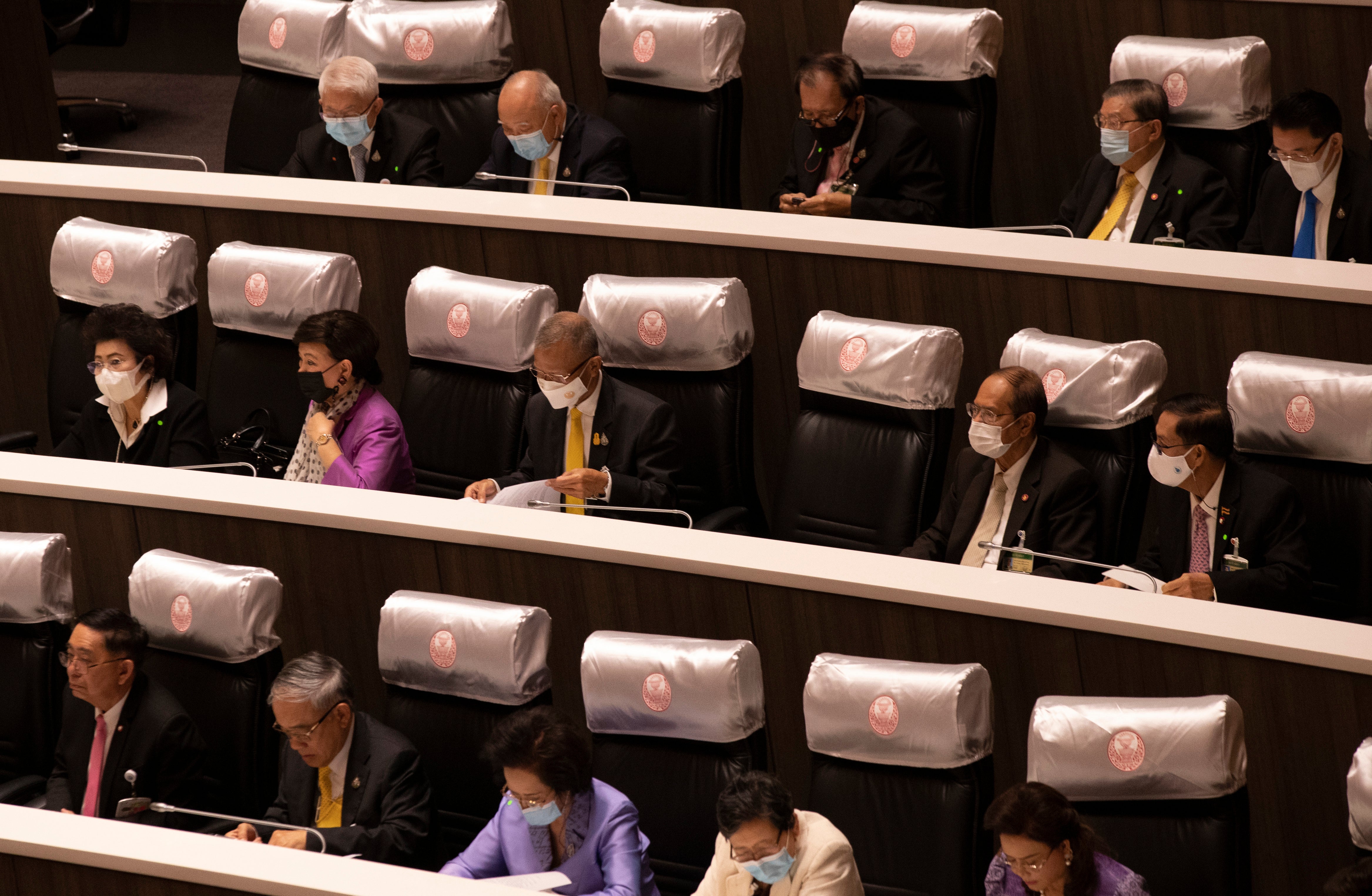Thai Parliament approves election system charter change
Thailand’s Parliament has approved a constitutional amendment changing how lawmakers are elected, a move expected to allocate more seats to big parties at the expense of smaller ones

Thailan ’s Parliament on Friday approved a constitutional amendment changing how lawmakers are elected, a move expected to allocate more seats to big parties at the expense of smaller ones.
The change, passed at a joint session of the House and Senate by a vote of 472 to 33, with 187 abstentions, comes into effect after the expected approval of King Maha Vajiralongkorn
The amendment is a legacy of the long and bitter political struggle between supporters and opponents of former Prime Minister Thaksin Shinawatra a billionaire populist who was ousted as prime minister by a 2006 military coup.
The system of mixed-member proportional representation approved Friday will give voters two separate ballots instead of the single one used in the 2019 election. One will be for their favored candidate in single-seat constituencies, and the other for the political party they support. Four hundred members of the House will be directly elected, while the 100 party list posts will be divided according to the nationwide party preference votes.
Clauses remain in the constitution that critics charge are undemocratic, including the power of the unelected Senate to vote jointly with the House to elect the prime minister.
“It does not matter which election systems we use as long as the senators still have voting power for the prime minister. The election system is almost meaningless,” tweeted Prajak Kongkirati, a political scientist at Bangkok s Thammasat University.
Current Prime Minister Prayuth Chan-ocha took power in 2014 by leading a coup as army commander. He was chosen by the joint houses of Parliament to be prime minister after the 2019 general election, in which he did not run.
Friday's amendment to election rules is a throwback to the system implemented under a 1997 constitution that sought to disadvantage smaller parties which had held leverage over the formation of coalition governments by trading their loyalty for Cabinet posts, perpetuating a political spoils system.
That change allowed Thaksin to use his fortune to bring regional political power brokers into his own party and build what his critics charged was a parliamentary dictatorship after he won the 2001 general election.
Thaksin fled into exile after his 2006 ouster from power, but his political machine retained its power and popularity. A 2017 constitution implemented under a military government set up new election rules designed to reduce his machine's influence by handicapping bigger parties.
The 2017 charter provided for 350 lawmakers elected directly by their constituents, and 150 from party lists under a complicated system of proportional representation that, roughly speaking, awarded seats in inverse proportion to those won by parties under the constituency vote.
The system backfired when the military-backed Palang Pracharath party performed more poorly than expected in 2019 and a new reformist party proved more popular than anticipated. Palang Pracharath was able to form a government, but only by assembling a messy coalition of smaller parties.